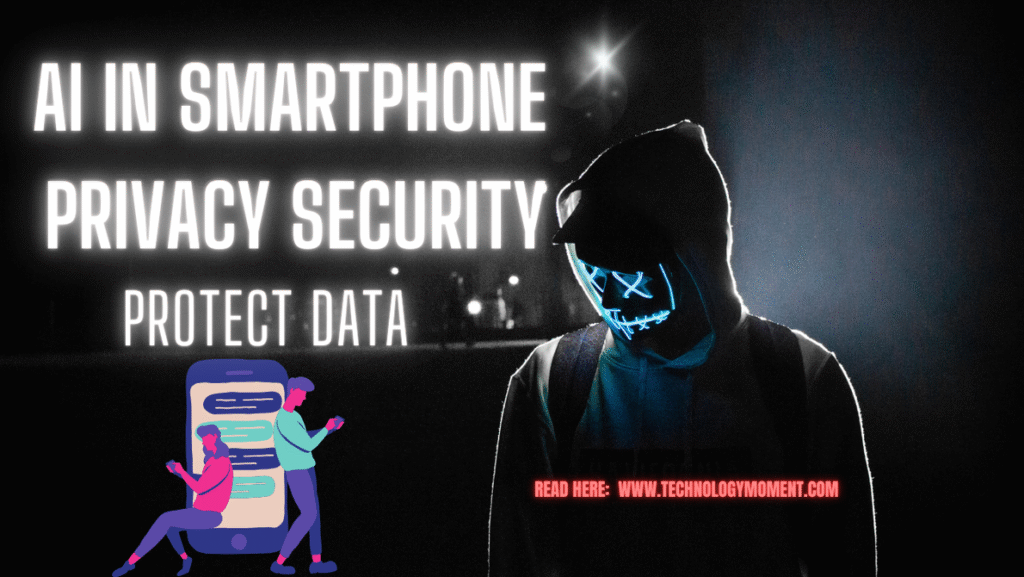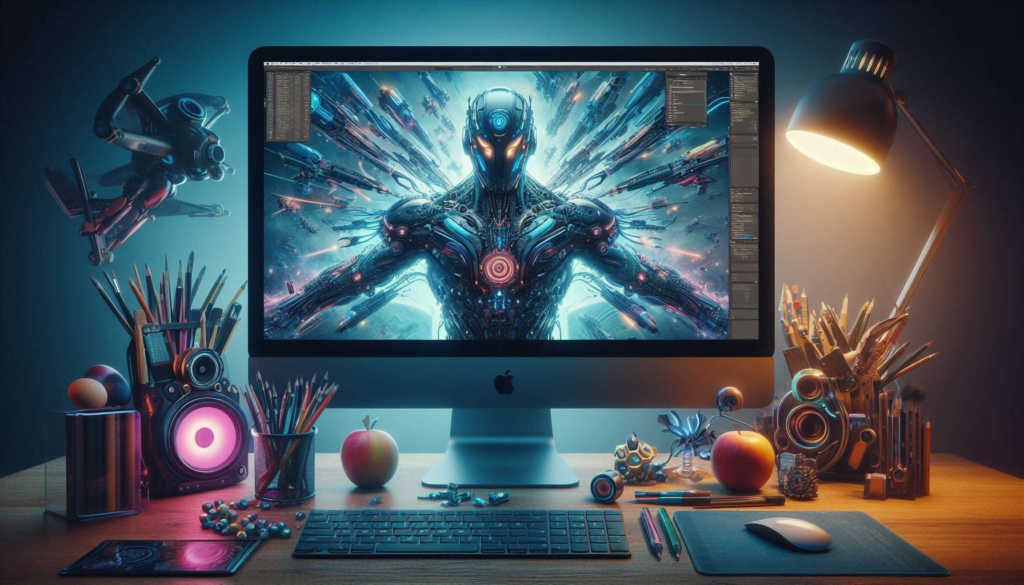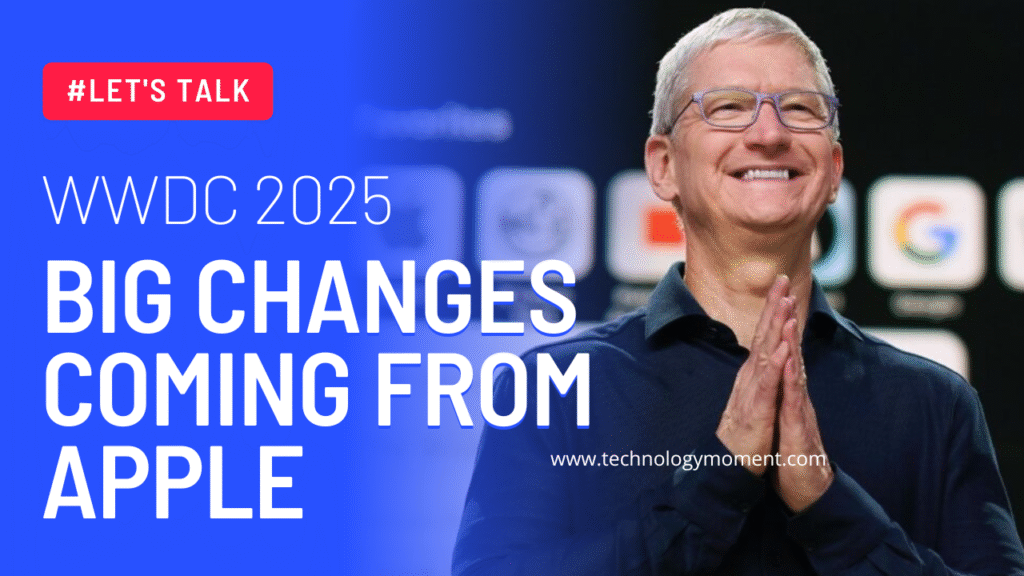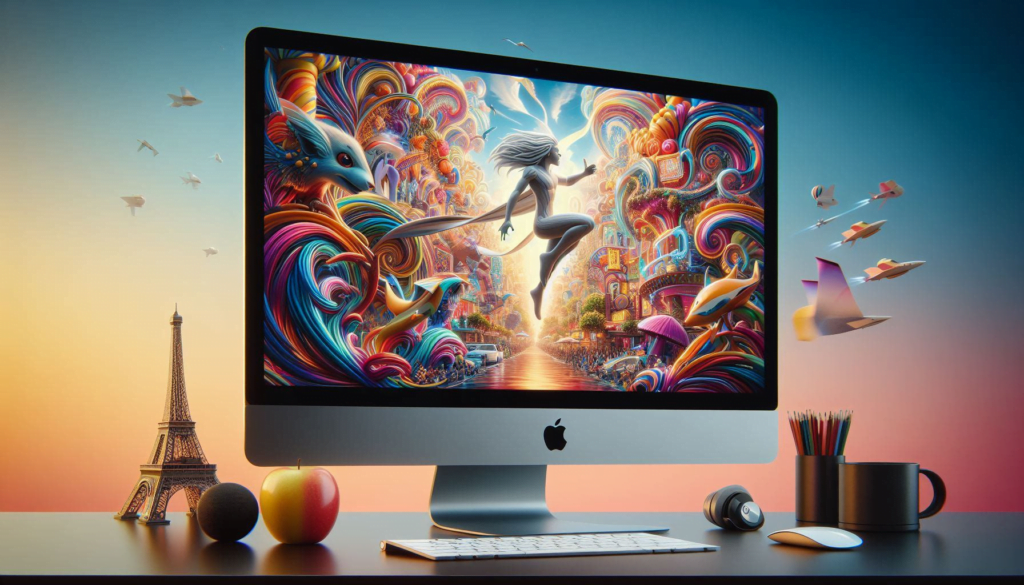
Welcome to Technology Moment, your go-to space where we make sense of the tech shaping our daily lives. Role of AI in Smartphone Privacy Security.
Let’s be honest—our smartphones aren’t just gadgets anymore. They’re our wallets, diaries, and even secret keepers. From late-night chats to banking apps, everything personal lives inside that little screen in your hand. But here’s the big question: how safe is all that data?
This is where Artificial Intelligence (AI) comes into play. Think of AI as your phone’s invisible bodyguard. It’s working round the clock, spotting threats before you even know they exist, and making sure your private world stays private.
In this blog, we’ll explore how AI is transforming smartphone security. We’ll discuss smarter locks, such as face recognition and real-time threat detection, as well as how AI safeguards your money during online payments. And don’t worry—we’ll keep it simple, clear, and practical, so you can see how these changes matter to you.
So, grab your phone (of course, safely locked!), and let’s dive into the role of AI in protecting your privacy and data.
Table of Contents
When we talk about smartphone privacy, it’s really about trust. Every time you send a message, share a photo, or log in to your bank app, you’re trusting your device to keep your data safe. Privacy is the shield that makes sure no one else—whether it’s hackers, companies, or even apps—can misuse that information.
Security, on the other hand, is like the lock on your digital door. It includes passwords, firewalls, and protections that stop strangers from breaking in. The problem is, cybercriminals are always inventing smarter ways to sneak past these locks. Malware, phishing links, fake apps, and even spyware can turn your phone into a goldmine of stolen data.
That’s why privacy and security are no longer optional. They’re basic needs, just like having clean water or safe food. And with so much at stake, we need stronger, smarter defenses than ever before.
The Rise of AI in Mobile Technology
AI has moved far beyond being a buzzword. It’s no longer limited to voice assistants or photo filters. Instead, it has become a silent partner that powers almost everything inside your smartphone. From predicting the next word you type to managing your battery usage, AI is always working behind the scenes.
But when it comes to privacy and security, AI is a game-changer. Traditional security tools often work reactively—they respond only after a threat appears. AI flips this around. It learns patterns, studies behaviors, and spots suspicious activity before it becomes a problem. Think of it as a personal security guard who not only reacts to a break-in but can sense trouble before it even reaches your doorstep.
This predictive ability is what makes AI stand out. Smartphones are now capable of analyzing massive amounts of data in real time, all thanks to AI. That’s why it’s increasingly becoming the backbone of mobile protection.
Passwords were once the strongest locks for phones. But let’s be honest—most of us reuse simple codes or forget complex ones. That’s where AI steps in with smarter, faster, and more secure authentication systems.
Face recognition is a perfect example. AI doesn’t just scan your face like a flat photo. It maps your unique features, studies depth, and adapts to small changes like haircuts or glasses. This makes it nearly impossible for hackers to trick the system with a simple picture.
Fingerprint scanning has also evolved with AI. It doesn’t just match patterns but learns from repeated inputs, making the system more accurate over time. Voice authentication adds another layer. AI can identify not only your voice but also the way you speak, your tone, and even background noise differences.
Beyond these, AI is exploring behavior-based access. Your typing rhythm, walking pattern, or the way you swipe on the screen could soon become your password. That means your phone recognizes you not just by what you know but by who you are.
Real-Time Threat Detection with AI
The internet is full of traps—malicious links, fake websites, and hidden malware waiting to attack. Traditional antivirus tools work by comparing threats with a known list of dangers. The problem? Hackers create new threats daily, and many slip through the cracks.
AI takes a different approach. Instead of relying only on known data, it looks for unusual patterns. For example, if an app suddenly tries to access your microphone at midnight, AI notices the odd behavior and alerts you instantly.
This real-time detection makes smartphones much harder targets. AI can catch phishing attempts by analyzing suspicious text or email patterns. It can also identify apps acting in ways they shouldn’t—like trying to read your contacts or track your location without reason.
It’s like having a guard dog that doesn’t need to know every single thief in the world—it just knows when something feels wrong and reacts instantly.
Encryption is like turning your private messages into secret codes that only the right key can unlock. But traditional encryption relies on fixed algorithms and keys, which, if stolen, can put your data at risk.
AI makes encryption smarter. It can create unique encryption keys for every session, making it nearly impossible for hackers to crack the code. Even if someone intercepts your data, without the correct AI-managed key, it’s nothing but gibberish.
Another advantage is automation. Instead of relying on humans to manage keys or update systems, AI takes care of the process in real time. It adapts to new threats and strengthens defenses without waiting for manual input.
This means your personal chats, financial transactions, and sensitive files stay locked away—even if hackers manage to get their hands on them. AI ensures that your digital secrets remain yours and yours alone.
Personalized Security Alerts
Security alerts are often annoying because they pop up too often or don’t make sense. But AI is changing this. Instead of giving you random warnings, AI studies the way you use your phone. It notices when something feels unusual.
For example, if you always log in to your banking app from your home Wi-Fi, AI learns that pattern. If suddenly someone tries to log in from a different country or a strange network, AI knows something is wrong. Instead of bombarding you with false warnings, it sends a clear, personalized alert.
The beauty of this is that alerts become useful. They are no longer just background noise. AI makes them smart, timely, and easy to act on. It’s like having a friend who taps your shoulder only when there’s real danger.
Have you ever installed an app that asks for too many permissions? A photo editing app that wants your location or microphone access—sounds fishy, right? That’s where AI steps in.
AI tracks how apps behave after installation. It quietly checks if the app is requesting more data than it needs. If it notices that a calculator app is suddenly trying to access your contacts, AI flags it as suspicious.
Even better, AI can suggest whether to allow or deny permissions. It gives you the power to stay in control without being a tech expert. This way, you don’t have to read long privacy policies or guess what’s safe. AI works in the background to protect you from apps that cross the line.
Role of AI in Smartphone Privacy Security
A big concern with AI is: if it collects so much data, does it invade your privacy itself? The answer lies in privacy-preserving AI. Instead of sending your data to the cloud, modern AI runs directly on your device. This means your information stays local—right inside your phone.
Think of it like having a personal security guard who never leaves your home. Edge computing and on-device processing make sure your data doesn’t travel around the internet unnecessarily. So, whether you’re unlocking your phone with face recognition or using predictive text, all the heavy work happens privately, without exposing your sensitive details to third parties.
This way, AI protects you without becoming a risk itself.
Mobile banking and digital wallets have become part of daily life. But with that convenience comes the risk of fraud. AI has turned into the invisible shield guarding your financial moves.
When you make a payment, AI doesn’t just check your password or fingerprint. It studies your habits—how you usually spend, where you shop, and even how fast you type. If a hacker tries to make a purchase that doesn’t match your usual pattern, AI steps in to block or flag it.
For example, if you normally buy groceries from your local store, but suddenly there’s a big purchase attempt in another country, AI catches the mismatch instantly. This saves you from losing money before the fraud even happens.
The result? You can shop, transfer money, or pay bills with peace of mind, knowing AI has your back every step of the way.
AI vs. Spyware and Ransomware
Spyware hides in your phone and secretly steals data. Ransomware locks your files and demands money. Both are nightmares no one wants to face. But AI has become a smart detective against these threats.
AI constantly scans your device for unusual activity. If an app behaves sneakily—like running in the background, sending data at odd hours, or draining your battery—AI notices it quickly. Unlike traditional antivirus tools that rely on old databases, AI learns new tricks hackers use and spots them in real-time.
In the case of ransomware, AI can detect the rapid file encryption process before it locks everything. It then stops the attack and keeps your data safe. It’s almost like having a guard dog that doesn’t just bark at strangers but knows exactly who’s trying to break into your house.
AI brings power and convenience, but it also raises questions we can’t ignore. When AI protects our smartphones, it learns from our data—our habits, locations, and even voices. This learning process can feel like a double-edged sword. On one side, it helps AI predict threats before they reach us. On the other side, it can make us wonder: “Who has access to my information?”
The concern is not just hackers. Sometimes, even trusted apps or services may misuse personal data collected for “security.” AI systems need massive amounts of information, and if that data is stored or shared without consent, privacy can take a serious hit.
Another issue is bias. AI decisions are only as good as the data they’re trained on. If the system misinterprets your behavior as suspicious, it could block you out of your own device. That’s frustrating, right?
This is why ethics matter. Companies must ensure transparency, secure data handling, and strict rules about how AI is used. At the same time, as users, we must stay alert and understand the trade-offs between convenience and privacy.
Future of AI in Smartphone Privacy
Looking ahead, AI will not just react to threats but predict them. Imagine your phone spotting a phishing link in an email before you even click it or recognizing a scam call the moment it rings. That’s where AI is heading—towards proactive protection.
Another big shift will be “privacy by design.” Future smartphones might come with built-in AI models that process data directly on the device instead of sending it to the cloud. This means your information stays with you, reducing the risk of leaks.
We might also see AI becoming more personal. Security systems could adapt not only to your fingerprint or face but also to your unique typing style, the way you walk, or even how you hold your phone. These micro-patterns can create a security shield almost impossible to crack.
Of course, as AI grows stronger, hackers will grow smarter. It will always be a race between attack and defense. But with smarter algorithms and real-time monitoring, AI is expected to stay a few steps ahead.
Even the smartest AI needs your support. Think of it as teamwork. You wouldn’t leave your house unlocked just because you have security cameras, right? The same applies here.
Always keep your device updated. Those little software updates often carry big fixes that close security holes. Be careful with the apps you download. Stick to trusted sources and check permissions before allowing access to your camera, mic, or location.
Use strong authentication. AI can help with biometric security, but adding a strong password or two-factor authentication gives you an extra layer of safety.
And don’t forget to review your settings. Many smartphones allow you to control how much data AI can access. Taking a few minutes to adjust those settings can make a huge difference in protecting your privacy.
Conclusion
AI has become the silent guardian of our smartphones. It scans, learns, and protects in ways we often don’t even notice. But it’s not perfect, and it comes with challenges. The real power lies in balance—using AI’s strengths while keeping an eye on ethics and privacy.
As technology advances, AI will likely make smartphone security stronger, faster, and more personal. But users will always play a role. By staying aware and practicing safe digital habits, we can make sure AI works for us—not against us.
FAQs
Can AI completely stop smartphone hacking?
No system is 100% foolproof. AI makes hacking harder by detecting and blocking threats faster, but users must still follow safe practices.
Does AI store all my personal data?
Not always. Many modern phones use on-device AI that processes data locally. Still, you should check your settings to control what’s shared.
Is biometric security like Face ID safe?
Yes, but it’s best when combined with other methods like passwords or PINs. Multi-layered security gives better protection.
Will AI make my phone slower?
Most AI functions are designed to run efficiently. In fact, many phones now have dedicated AI chips to handle tasks without draining performance.
What’s the best way to protect my phone data today?
Update your system regularly, use strong authentication, and manage app permissions. Combined with AI-powered security, these steps keep your data safer.






